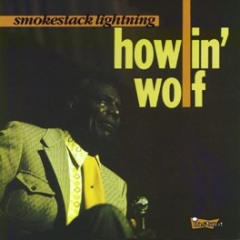Howlin Wolf – Smokestack Lightning (1990)
Howlin Wolf – Smokestack Lightning (1990)

01 - Moanin' At Midnight 02 - How Many More Years 03 - All Night Boogie (All Night Long) 04 - No Place To Go 05 - Baby How Long 06 - Evil (Is Going On) 07 - Forty Four 08 - Smokestack Lightning 09 - I Asked For Water (She Gave Me Gasoline) 10 - The Natchez Burning 11 - Goin' Back Home 12 - Bluebird 13 - My Life 14 - You Ought To Know 15 - Who's Been Talking 16 - Nature 17 - Walk To Camp Hall 18 - My Baby Told Me 19 - Sittin' On Top Of The World 20 - Howlin' For My Baby 21 - Wang-Dong-Doodle 22 - Back Door Man 23 - Spoonful 24 - Down In The Bottom 25 - Shake For Me 26 - The Red Rooster 27 - You'll Be Mine 28 - Goin' Down Slow Bass Guitar – Alfred Elkins, Willie Dixon Drums – Sam Lay, Fred Below, S.P. Leary, Earl Phillips Guitar – Hubert Sumlin, Jimmy Rogers, Fred Robinson, Smokey Smothers, Willie Johnson Piano – Henry Gray, Johnny Jones, Otis Spann, Hosea Lee Kennard, Ike Turner Saxophone [Tenor] – Adolph "Billy" Duncan Vocals, Bass Guitar – Willie Dixon Vocals, Guitar, Harmonica - Howlin' Wolf
With original compositions like "I Asked for Water (She Gave Me Gasoline)" and "Smokestack Lightning," Howlin' Wolf was one of the main links between the older, mostly acoustic strain of the Mississippi Delta blues and the more urbane and contemporary version that Willie Dixon spearheaded, composing, performing, and producing for Chess Records in the 1950s and '60s.
Howlin' Wolf was already a middle-aged blues star with his own radio program down South by the time he moved to Chicago, lured by Chess in 1953. Soon enough he would begin collaborating with Dixon, the label's main creative force, but when he first arrived and began recording, it was with material that he penned himself. "Smokestack Lightning" seems almost like a distillation of the essence of the blues; it is almost all one riff, with no chord changes, with Wolf growling and, yes, howling in a falsetto. Recorded in 1956, the swampy atmospheric track features Hosea Lee Kennard on piano; Willie Johnson and stalwart Wolf sideman Hubert Sumlin on guitars; Earl Phillips on drums; Dixon on upright bass; and Wolf playing harp and singing. The original single recording was made available on the 1966 collection Real Folk Blues. It is a pleasingly primitive and raw representation of the blues, pure and chant-like. Wolf truly sounds like a man in otherwise inexpressible agony, flailing for words, bawling, "Smokestack lightning/Shining like gold/Oh, don't you hear me crying?/Tell me baby/Where did you stay last night?/Woah stop your train/Oh let a hobo ride/Oh fare thee well/I don't want to see you no more/Oh, don't you hear me crying?" Wolf's delivery here is directly influential to more modern blues singers like Captain Beefheart and Tom Waits, two artists who appreciate Wolf's disjointed, linear approach to the song. He shows the sort of ear that writers like Dixon and Chuck Berry show for the musical quality in the sounds of words themselves.
Recounting his writing of the song's characteristic bending riff, Sumlin explained to Ted Drozdowski for Guitar.com, "Wolf made my ass come up with that shit. Hell, I had to play to God! He always used to put me down: 'You ain't doing this! You ain't got that right!' I said, 'F--- it, who you think you are? Some f---in' state trooper?' For 'Smokestack Lightning,' Wolf wrote it, and then he made me come up with that part." "Smokestack Lightning" has become a blues standard, open to varied interpretation, covered by artists ranging from the Yardbirds to Soundgarden, all stamping their personal imprint on the song. ---Bill Janowitz, allmusic.com
download (mp3 @320 kbs):
Last Updated (Thursday, 11 February 2021 09:16)
